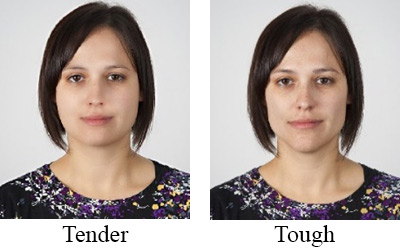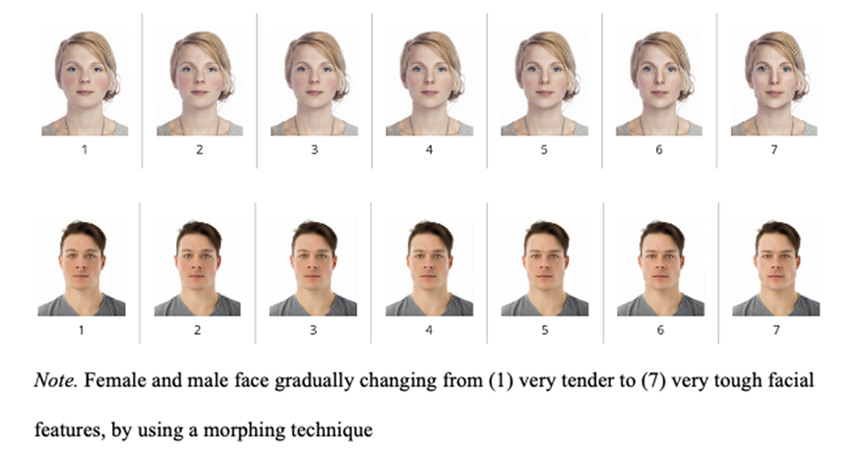Are you single? Do you use dating apps when looking for a new partner? When using dating apps like Tinder and Bumble, many think they know they find a particular "type" attractive as far as who they are seeking in the dating pool. Our research examined whether this was so. We investigated whether preferences for a particular type of partner are stable or whether they are determined by the situation.
Previous research investigating partner choice has often tried to explain what exactly determines a person's partner preferences, but those studies rarely took more temporary psychological states into account. We propose, however, that people's temporary feelings of uncertainty (such as due to the COVID-19 pandemic or a financial crisis) may affect their partner preferences.
To test our proposition, my co-author Kobe Millet and I conducted four studies to test the extent in which uncertain events (such as COVID-19) influence the types of partners that men and women feel attracted to. We discovered that partner preferences may not be as stable as one might like to think. In times of uncertainty, people seem to seek out partners that fit with stereotypes (women who are tender-looking and caring versus men who are tough-looking and strong), whereas this need becomes less in times of certainty.
Which Facial Features of the Opposite Sex Are More Attractive Under Uncertainty?
In the first study, respondents were asked to imagine a situation in which they felt uncertain (for example, a drop in housing prices due to an economic crisis, or being faced with too many choice options) or certain (such as trust in good education, or assurance of basic services). This task brought feelings of uncertainty to the forefront of people's minds.
They then saw photos of potential dating partners. A professional graphic designer modified the pictures to create for each face a version with tender facial features and a version with tough facial features. For the tender feature faces, the outer facial contour was made less angular, and the tip of the nose, cheeks, and lips were rounded. For the tough feature faces, the nose and chin were made sharper and the jawbone more angular. The respondent then indicated which face they found most attractive and whether they would like to go on a date with that person.

An example of a female face with tender versus tough facial features
The results showed that under uncertainty, women felt more attracted to men with tougher facial features, whereas men felt more attracted to women with more tender facial features. However, this gender difference disappeared when people felt—men and women found both partners equally attractive regardless of facial structure.
To gain confidence in these findings, we used in the next study a morphing technique to create images of the same face that gradually changed from extremely tender to extremely tough. This time we asked participants to either think about COVID-19 and how it made them feel uncertain or about a regular day in their lives. Even with the novel method, our results were the same, such that when thinking about COVID-19 uncertainty, male respondents felt more attracted to the female with more tender features, whereas female respondents to the male with tougher features. And, again, this preference disappeared when people thought of a regular day.

Why Are There Gender Differences in Partner Preference Under Uncertainty?
Two subsequent studies also revealed that in uncertain times, men and women reported being more attracted to a partner with tender or tough features because they related these facial features to stereotypical gender roles. While women with tender features were thought to be a caring type, men with hard features were believed to be stronger. Apparently, stereotypes play a greater role in mate selection during uncertain times.
External and unpredictable events, such as a climate disaster or the corona pandemic, create a lot of uncertainty. We often feel the urge to seek certainty during times such as these. We do this partly by looking for order and structure. Using stereotypes makes us feel like we have more certainty about the world, by quickly categorizing people into groups. Conversely, people may fall back less on stereotypical gender roles in times and places where they feel more secure and certain.
These insights are not only important to better understand people's partner preferences, but are also practically applicable. For example, perhaps candidates on dating sites can adjust how to present themselves in uncertain times, by accentuating tender or tougher features. In addition, a female model with tender, softer features (or a male model with tough, harder features) might be better used in product commercials in times of crisis.
Thus, when you believe that you feel attracted to the same types of guys or gals when you are looking for a date, you may be wrong. In uncertain times you may end up with a much more stereotypical date than when times are more predictable.
For Further Reading
Van Horen, F., & Millet, K. (2022). Unpredictable love? How uncertainty influences partner preferences. European Journal of Social Psychology, 1-9. https://doi.org/10.1002/ejsp.2854
Femke van Horen is an Associate Professor of Marketing at the Vrije Universiteit Amsterdam, The Netherlands. Her research interests include environmental uncertainty, sustainability, and the effectiveness of product imitation strategies.
Kobe Millet is an Associate Professor of Marketing at the Vrije Universiteit Amsterdam, The Netherlands. His research interests include consumer psychology, environmentally (un)friendly decision-making, and prosocial behavior.




